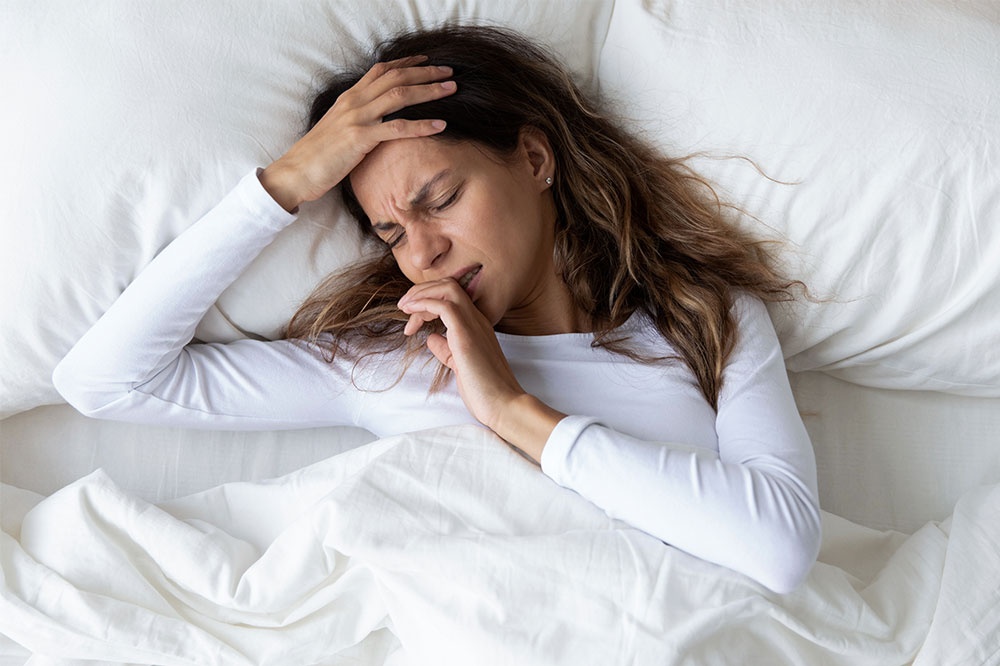Effective Ways to Enhance Your Sleep Quality for Better Health
Discover comprehensive strategies to improve your sleep quality, including establishing routine, limiting screen time, managing caffeine and alcohol intake, and maintaining consistent sleep schedules. These practical tips can lead to healthier, more restorative sleep, boosting your overall well-being and daily productivity. Implementing these habits can transform restless nights into peaceful, rejuvenating sleep, helping you wake up refreshed and energized each day.

Effective Ways to Enhance Your Sleep Quality for Better Health
Achieving a high-quality, restful sleep is foundational to maintaining optimal health and well-being. Sleep impacts various aspects of physical and mental health, including immune function, metabolism, mood, and cognitive performance. Despite its critical importance, many individuals worldwide face persistent sleep difficulties due to modern lifestyles, stress, and environmental factors. Improving sleep quality requires intentional adjustments to daily routines and sleep environment. In this comprehensive guide, we explore proven strategies and practical tips to help you enjoy more restful nights, leading to energized days and overall healthier living.
Establish a Strict Bedtime Routine and Limit Smartphone Usage
Creating a consistent pre-sleep routine signals to your body that it’s time to wind down. Design your bedroom strictly for relaxation—avoid using electronic devices in bed. The blue light emitted by smartphones, tablets, and computers suppresses melatonin production, the hormone responsible for regulating sleep-wake cycles. To promote better sleep, develop a habit of turning off electronic screens at least one hour before bedtime. Use built-in night mode or blue light filters on your devices to reduce exposure if necessary. Keeping your sleep space tech-free decreases mental stimulation and helps your body relax, making it easier to fall asleep naturally and stay asleep longer. Additionally, incorporating calming activities such as reading a book, listening to soothing music, or practicing meditation can further prepare your mind and body for restful sleep.
Limit Caffeine Intake, Especially in the Afternoon & Evening
While caffeine is effective for increasing alertness and concentration during the day, consuming it late in the afternoon or evening can significantly disrupt your sleep cycle. Caffeine blocks adenosine, a neurotransmitter that promotes sleepiness, leading to difficulties in falling asleep and reduced sleep quality. As the effects of caffeine can last approximately 6-8 hours, it’s recommended to avoid caffeine after 4 or 5 p.m. for optimal sleep. Be mindful of hidden sources of caffeine such as tea, chocolate, and certain medications. Transitioning to herbal teas or decaffeinated beverages in the latter part of the day can help your body relax and prepare for sleep, ensuring that you experience deeper, more restorative rest.
Maintain a Consistent Sleep Schedule, Even on Weekends
Our bodies are governed by circadian rhythms, internal clocks that regulate sleep-wake cycles. Going to bed and waking up at the same time every day—seven days a week—helps stabilize these rhythms. Consistent sleep schedules improve sleep quality, reduce insomnia, and enhance daytime alertness. Setting fixed wake-up times also minimizes dependence on alarms, allowing your body to naturally wake up feeling refreshed. Over time, this routine leads to a more synchronized biological clock, making sleep more predictable and restorative. If adjusting your schedule, do so gradually—shifting bedtime and wake-up time by 15-30 minutes every few days—to prevent disruption.
Optimize Nap Duration and Timing
Short naps, around 20-30 minutes, can serve as effective power boosts during the day, enhancing alertness and mood. However, longer or late-afternoon naps can interfere with your nighttime sleep by confusing your internal clock. Extended naps may lead to sleep inertia—a groggy feeling upon waking—and reduce sleep pressure necessary for a natural, deep sleep cycle at night. To maximize benefits and minimize disturbances, keep daytime naps brief and schedule them early in the afternoon. If you find yourself needing longer rest periods, try to limit the frequency and duration to maintain overall sleep health.
Refrain from Alcohol Consumption Before Bedtime
Although alcohol may initially make you feel sleepy, it adversely affects sleep architecture. Alcohol decreases melatonin levels and fragments sleep, especially during REM, the most restorative sleep stage. This disruption results in poorer quality sleep, frequent awakenings, and decreased daytime alertness. Additionally, alcohol's sedative effects are temporary, often leading to early REM rebound and restless sleep later in the night. For improved sleep hygiene, avoid alcohol at least 2-3 hours before bedtime. Instead, focus on relaxing activities like reading or gentle stretching, which promote natural sleep onset without interference.
By implementing these evidence-based strategies consistently, you can significantly improve your sleep quality over time. Better sleep enhances physical health, mental clarity, emotional stability, and overall quality of life. Remember, establishing healthy sleep habits is a gradual process—patience and persistence are key to transforming your nights into truly restorative experiences. Start today with small changes, and enjoy the long-term benefits of restful, rejuvenating sleep every night.





